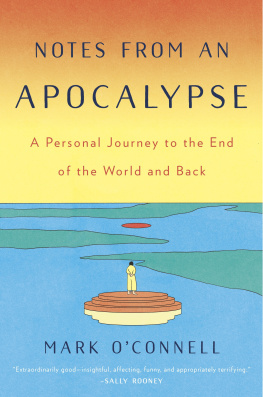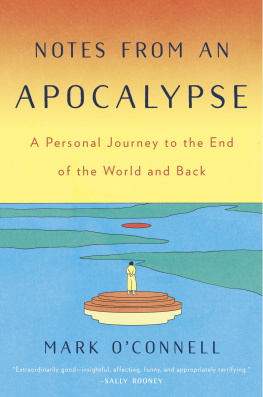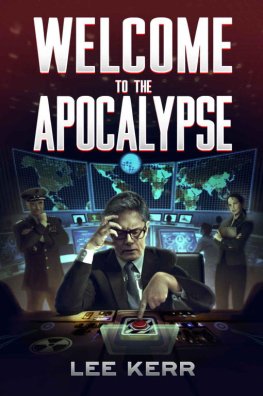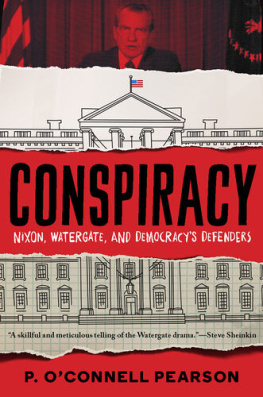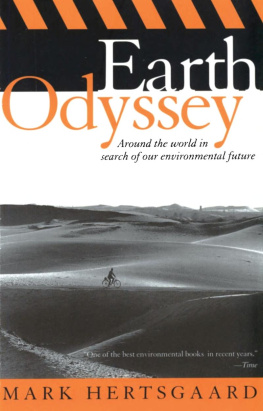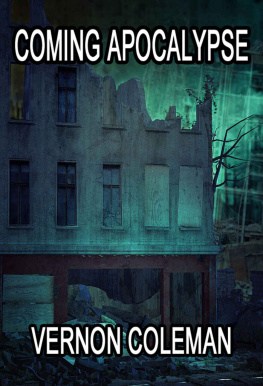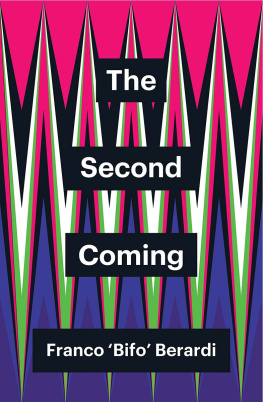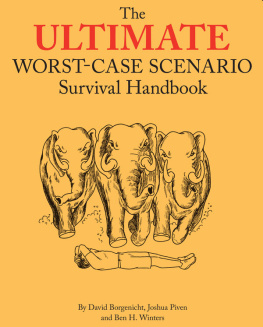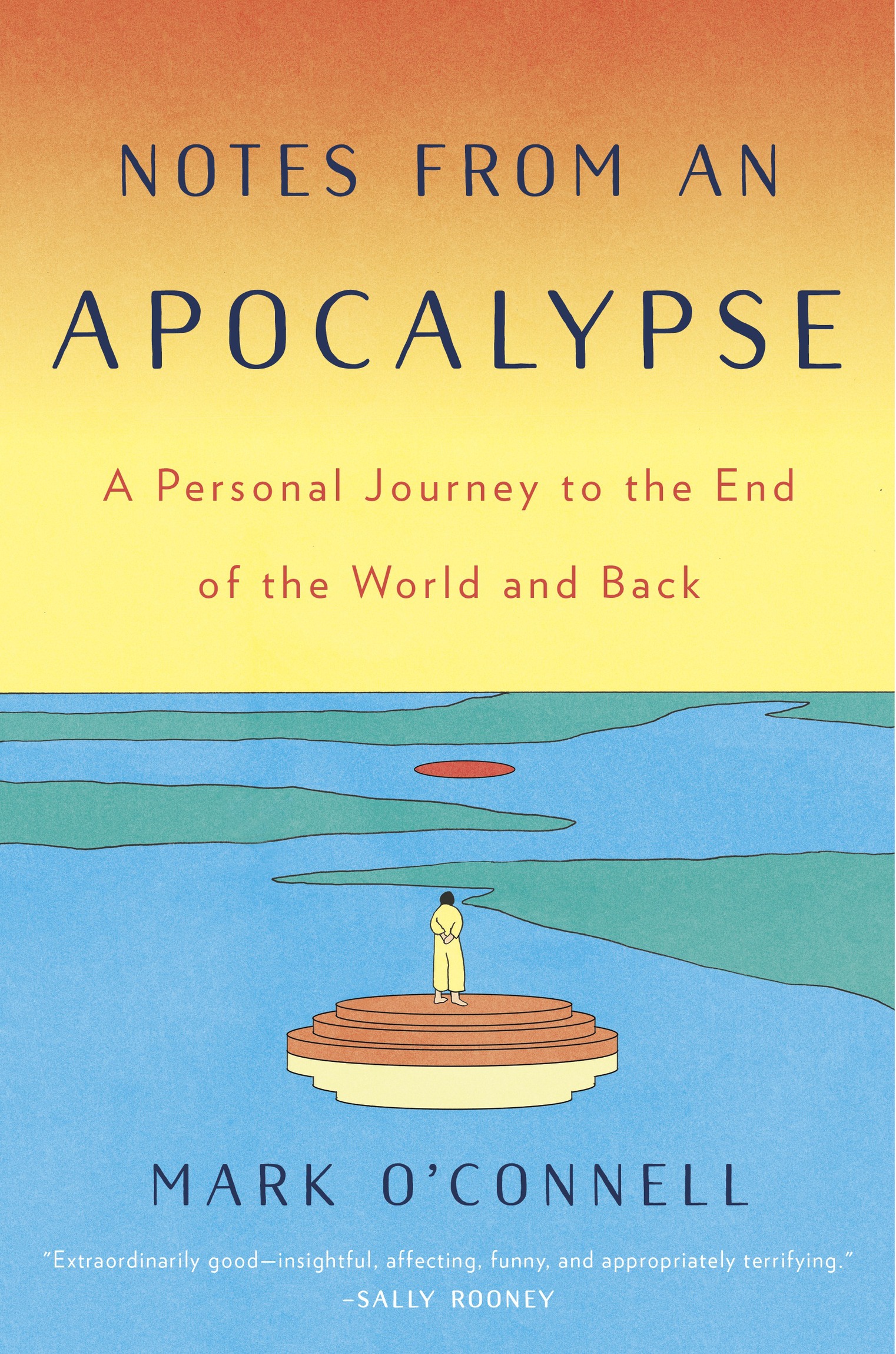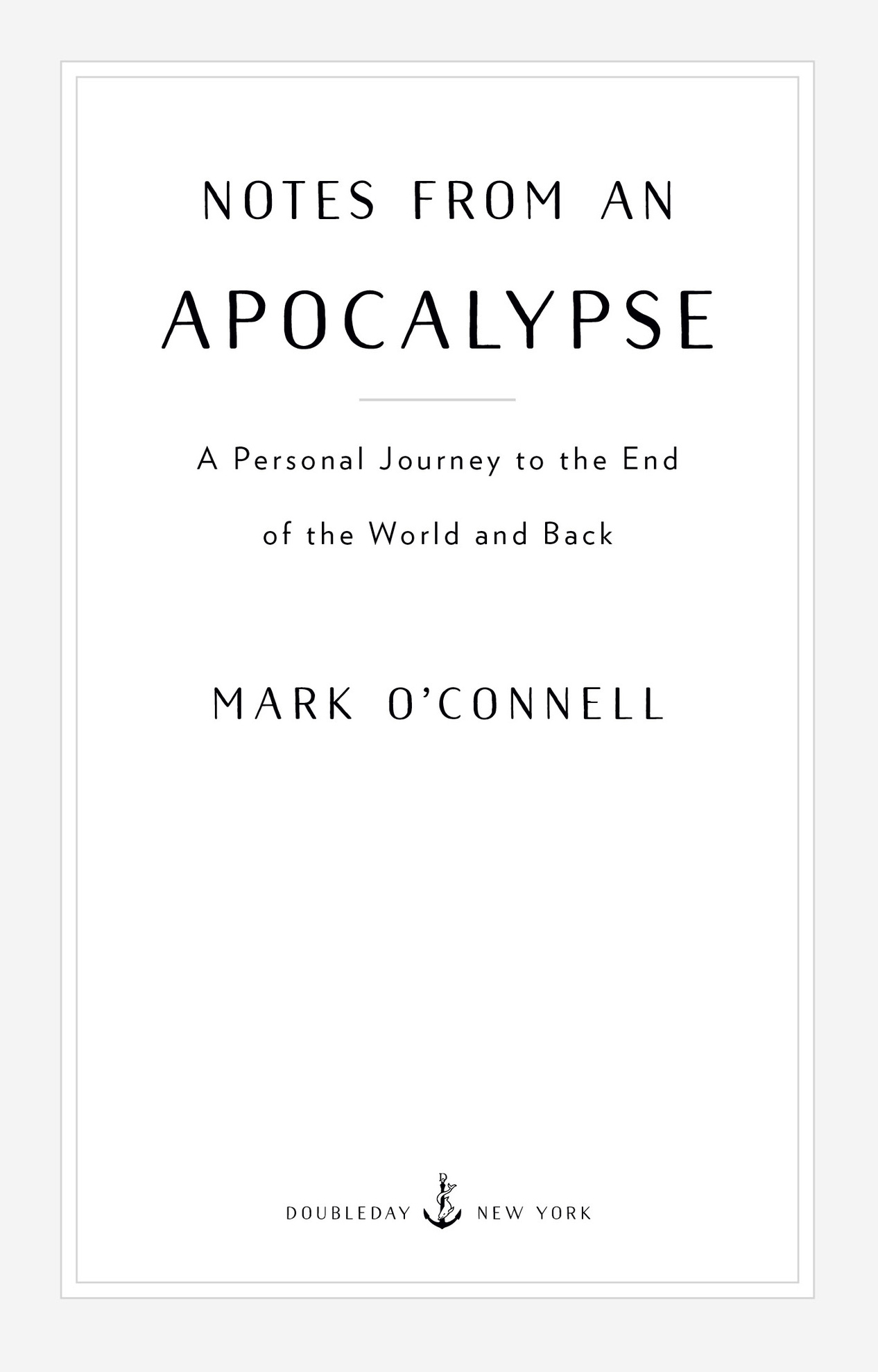ALSO BY MARK OCONNELL
To Be a Machine
Copyright 2020 by Mark OConnell
All rights reserved. Published in the United States by Doubleday, a division of Penguin Random House LLC, New York, and distributed in Canada by Penguin Random House Canada Limited, Toronto.
www.doubleday.com
DOUBLEDAY and the portrayal of an anchor with a dolphin are registered trademarks of Penguin Random House LLC.
Cover illustration by Mara Medem
Cover design by John Fontana
Library of Congress Cataloging-in-Publication Data
Names: OConnell, Mark, [date] author.
Title: Notes from an apocalypse : a personal journey to the end of the world and back / Mark OConnell.
Description: First edition. | New York : Doubleday, [2020]
Identifiers: LCCN 2019024066 (print) | LCCN 2019024067 (ebook) | ISBN 9780385543002 (hardcover) | ISBN 9780385543019 (ebook)
Subjects: LCSH: Survivalism. | Emergency managementSocial aspects.
Classification: LCC GF86 .O36 2020 (print) | LCC GF86 (ebook) | DDC 613.6/9dc23
LC record available at https://lccn.loc.gov/2019024066
LC ebook record available at https://lccn.loc.gov/2019024067
Ebook ISBN9780385543019
ep_prh_5.5.0_c0_r0
For Amy, Mike, and Josephine
Adults keep saying: We owe it to the young people to give them hope. But I dont want your hope. I dont want you to be hopeful. I want you to panic. I want you to feel the fear I feel every day. And then I want you to act. I want you to act as you would in a crisis. I want you to act as if our house is on fire. Because it is.
Greta Thunberg
These times of ours are ordinary times, a slice of life like any other. Who can bear to hear this, or who will consider it?
Annie Dillard
CONTENTS
1
TRIBULATIONS
It was the end of the world, and I was sitting on the couch watching cartoons with my son. It was late afternoon, and he was sprawled across my lap, looking at a show about a small Russian peasant girl and the comic scrapes she gets embroiled in with her long-suffering bear companion. I was holding my phone over his head, scrolling downward through my Twitter feed. The bear and the girl were involved in some kind of fishing-based slapstick escapade, in which the bear was doing a lot of stumbling about and falling over. My son was giggling happily at this, turning his face periodically upward to ensure that I was aware of the amusing pratfalls unfolding on our television screen.
On the smaller screen of my phone, I came across an embedded YouTube video on which, precisely because its accompanying text advertised it as soul-crushing and heart-wrenching, I clicked without hesitation.
As my son watched his cartoon, I held my phone above his line of vision and watched an emaciated polar bear dragging itself across a rocky terrain, falling to its knees and struggling to lift itself again, hauling its tufted carcass onward toward a cluster of rusting metal barrels half filled with trash, from which it eventually managed to paw out what looked like a knuckle of raw bone, more or less totally devoid of meat. The animal was a pathetic sight; because of the wasting effects of malnutrition, it looked more like a gargantuan stoat or weasel than a polar bear. As it slowly chewed whatever it was that it had managed to scavenge from the trash, its eyes half closed in deep and terminal fatigue, a white tide of saliva frothed slowly from its mouth, while over this footage a cello played a slow and mournful glissando.
I turned down the sound on my phone so as not to attract my sons attention, his inexorable questions. He was three then, and our relationship in those days took the form of an endless interrogation.
A text at the bottom of the screen explained that the footage was shot near an abandoned Inuit village in the northern Canadian tundra, where the bear had strayed in search of food, the population of seals, its usual food source, having been drastically diminished by the effects of climate change.
My soul remained uncrushed, my heart more or less unwrenched. I felt instead a creeping disgust at the footage itself, at the manner of its presentationthe lachrymose music, the stately pace of the editingwhich seemed designed to elicit in me a recognition of my own contribution to this terrible situation, together with a virtuous and perhaps even redemptive swelling of sorrow, of noble sadness at the ecological destruction in which I myself was playing a role. It occurred to me then that the disgust I felt was the symptom of a kind of moral vertigo, resulting from the fact that the very technology that allowed me to witness the final pathetic tribulations of this emaciated beast was in fact a cause of the animals suffering in the first place. The various rare-earth minerals that were mined for the phones components in places whose names I would never be required to learn; the fuels consumed in the course of its construction, its shipping halfway across the world, its charging with electrical current on a daily basis: it was for the sake of all this, and in my name, that the bear was starving and dragging itself across the rocky ground.
The slapstick capering of the cartoon bear my son was watching on the television screen and, above his head, the awful distress of the real bear on the smaller screen: the absurd juxtaposition of these images, simultaneously summoned from the ether and vying for attention, generated a strange emotional charge, a surge of shame and sadness at the world my son would be forced to live in, a shame and sadness that I in turn was passing on to him.
It seemed to me that I was being confronted with an impossible problem: the problem of reconciling the images on these two screens, or at least of living with the fact of their irreconcilability. The bears in his world were always hanging out with kids and having adventures, living in cabins, enduring comic mishaps, coming good in the end. The bears in mine were all rummaging in bins and starving to death. I wanted him to live in that first world, that good world, as long as possible, but I knew that soon enough he would have to leave it and live in the future. And it was not obvious to me how a person was supposed to raise children, to live and work with a sense of meaning and purpose, in the quickening shadow of that future.
It didnt take much, in those days, to set me off on a path toward the end of the world. There were frequent opportunities to indulge my tendency toward the eschatological. Cartoons, viral videos, radio news bulletins, uneasy exchanges with neighbors about how it never used to be this warm in February. So many things felt like a flashback sequence in the first act of a postapocalyptic movie, like we were living right before the events of the main timeline kicked in. I knew that this kind of thinking was as old as human civilization itself, that imagining the apocalypse was immemorially a response to times of rapid change and uncertainty. This recognition made it no less oppressive, no less real.
What did I feel when I thought about my son and his future? I felt a kind of abstract but all-consuming melancholy. My love for him felt like an insoluble moral problem. The smart money seemed to be on apocalypse, but as a parent I felt I had some kind of moral duty to be deluded about the future, to avert my gaze from the horizon. I was by no means living up to this duty.

